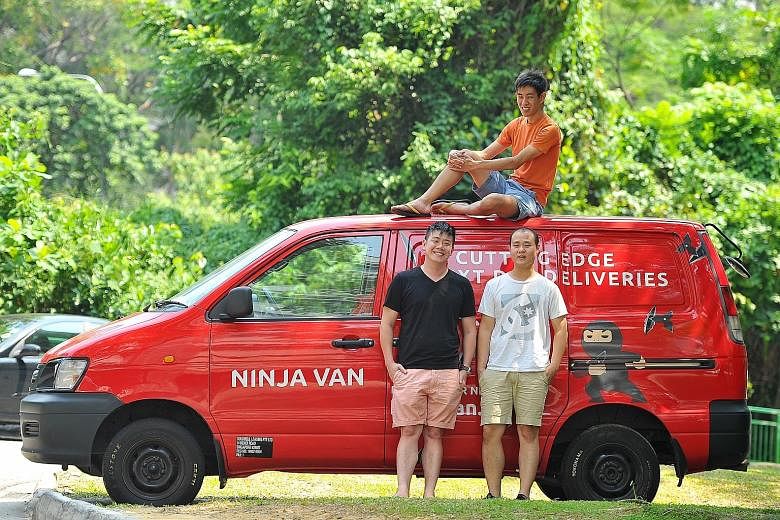Singapore is riding high on the global online shopping wave, with e-commerce sales hitting US$3 billion (S$4.2 billion) last year, according to statistics from PayPal.
But e-commerce retailers are not the only ones reaping the rewards. Associated industries such as software and logistics are seeing a corresponding surge in business as well.
For example, from 2009 to 2013, the number of logistics establishments grew from 7,169 to 7,606, according to Spring Singapore.
As a result, many companies have sprung up in such sectors or re-oriented themselves to take advantage of the market opportunities.
Stridec, a 14-year-old home- grown software and Web solutions provider, is one of them. It used to sell software to schools for lesson planning. But since 2012, it has focused purely on e-commerce. It creates booking engines and payment portals, as well as custom software for clients wanting an edge over their competitors.
Stridec developed a price-sniffing software for a watch shop in Chinatown. The software is designed to go to competitors' webpages to track the prices of their watches. It would then automatically adjust the selling price on its user's e-commerce page to be a dollar lower, 2 per cent lower, or the same, depending on the parameters set.
"When you sell watches like Casio G-Shock and Seiko, price becomes very important, because it is a commoditised product," said Stridec founder Alva Chew, 35.
His watch-shop client is now doing so well that it converted 70 per cent of its retail space into a back room to processes all the online orders. In fact, the shopfront is now just a "facade", said Mr Chew.
Another company that has benefited from the growth of online shopping is Ninja Van, an e-commerce logistics provider and last-mile delivery service. The 15-month-old firm has received a substantial US$2.5 million in funding from investors. Mr Lai Chang Wen, 28, one of Ninja Van's three co-founders, said they saw an opportunity in the market because when they started out, "logistics was not built for e-commerce".
Mr Lai also co-founded Marcella, a custom menswear brand which allows customers to order tailor- made shirts online.
He pointed to the manual and cumbersome methods in delivery processes. For instance, delivery documents are usually handwritten and tracking of parcels is difficult.
He and his co-founders Shaun Chong, 31, and Boxian Tan, 27, wanted to build a delivery system that could banish such inefficiencies.
"Every time a courier delivered something to us, we paid them a bit of money to tell us what they do every day. We even created fake deliveries to each other, to that they would come, and we could ask them questions," Mr Lai recounted.
They learnt the ins-and-outs of the delivery system, including how packages are sorted and assigned to drivers. They then designed their software to take into account minute details such as package size and a driver's ability.
They say their algorithm is so efficient they use one-third the manpower of other delivery systems, allowing them to drive down their prices while still providing top- notch service.
When Ninja Van started last year, it received a few hundred packages a day at its sorting centre in Jalan Kilang Barat.
Now, more than 5,000 packages a day flow through the centre, to be sorted, packed and delivered by drivers on pre-planned routes generated by the algorithm.
The company owns a fleet of 90 vehicles, and has a headcount of 200. Its first overseas foray was into Malaysia - two months ago - and it plans to expand into Indonesia two months from now.
While the bulk of Ninja Van's business is e-commerce-driven, the three partners have their sights set higher. "Logistics is still a huge, huge industry, and it is not just about e-commerce. E-commerce is the entry point, as it is the fastest-growing segment of logistics, but there are many, many more," Mr Lai said.
He hopes to eventually expand into other areas of logistics, such as the food distribution and pharmaceutical sectors.
"Eventually, we want Ninja Van to be powering every single logistics move in the region, whether you are moving shampoo from a warehouse to a shop, or delivering food from a restaurant to a customer," he said.


